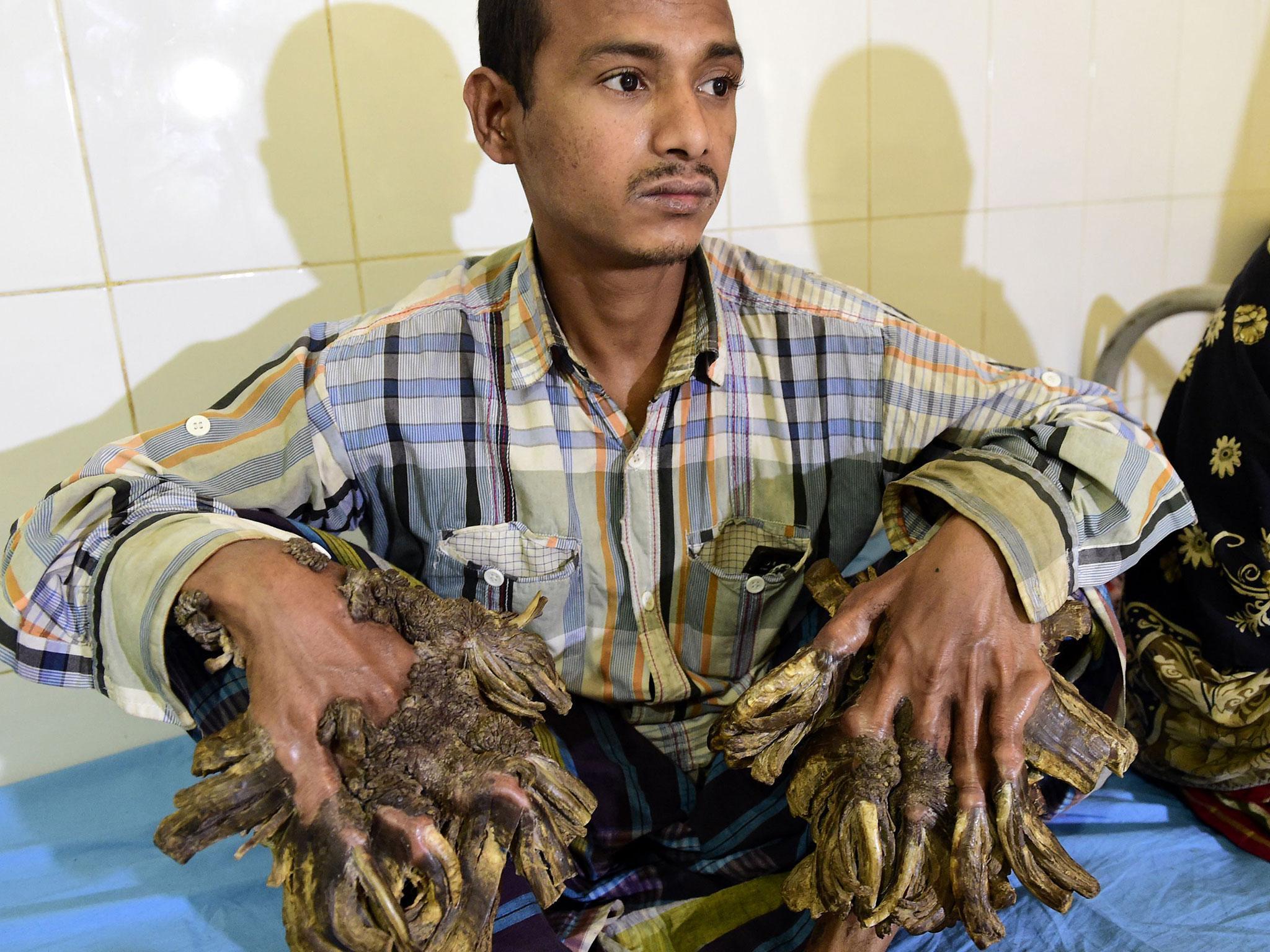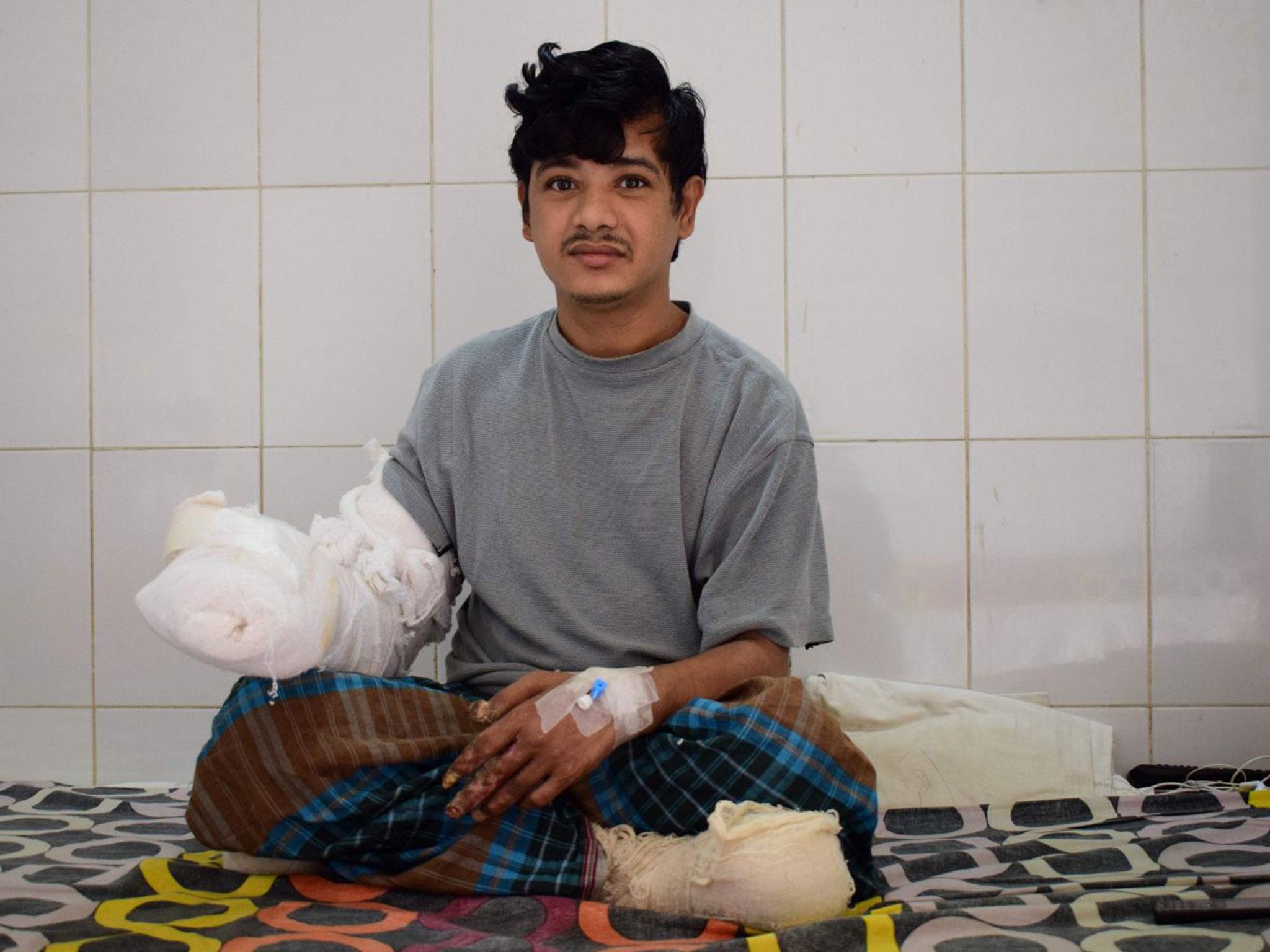'Tree man' of Bangladesh 'cured' after 16 operations to fight rare skin condition, potentially making medical history
Abul Bajandar says he is happy to be able to play with his daughter again

A Bangladeshi man who made news around the world because of a rare skin condition has been "cured", doctors have said.
Abul Bajandar was dubbed "tree man" because of the large, wood-like warts on his body, caused by the rare genetic condition epidermodysplasia verruciformis.
Doctors at the Dhaka Medical College Hospital believe if the warts do not grow back, Mr Bajandar would be the first person ever to recover from the disease.

And after 16 operations, he was finally able to embrace his daughter.
“I never thought I would ever be able to hold my kid with my hands,” Mr Bajandar told AFP news agency.
“Now I feel so much better. I can hold my daughter in my lap and play with her. I can’t wait to go back home.”
He received free treatment at the hospital after his condition came to the attention of doctors. Mr Bajandar and his wife and daughter have been living in the facility for the past year.
Plastic surgery coordinator Samanta Lal Sen said "Bajandar’s cure was a remarkable milestone in the history of medical science” and added that his hands and feet were “almost fine”.
Mr Sen expected just two more minor surgeries would need to be performed on Mr Bajandar before he could be discharged.
Mr Bajandar, from the eastern district of Khulna, was not always afflicted with the warts and met his wife before they became problematic. He also worked as a rickshaw driver but as the condition deteriorated he was forced to stop.
He told AFP he plans to set up a small business with donations he has received from well-wishers.
Join our commenting forum
Join thought-provoking conversations, follow other Independent readers and see their replies
Comments
Bookmark popover
Removed from bookmarks